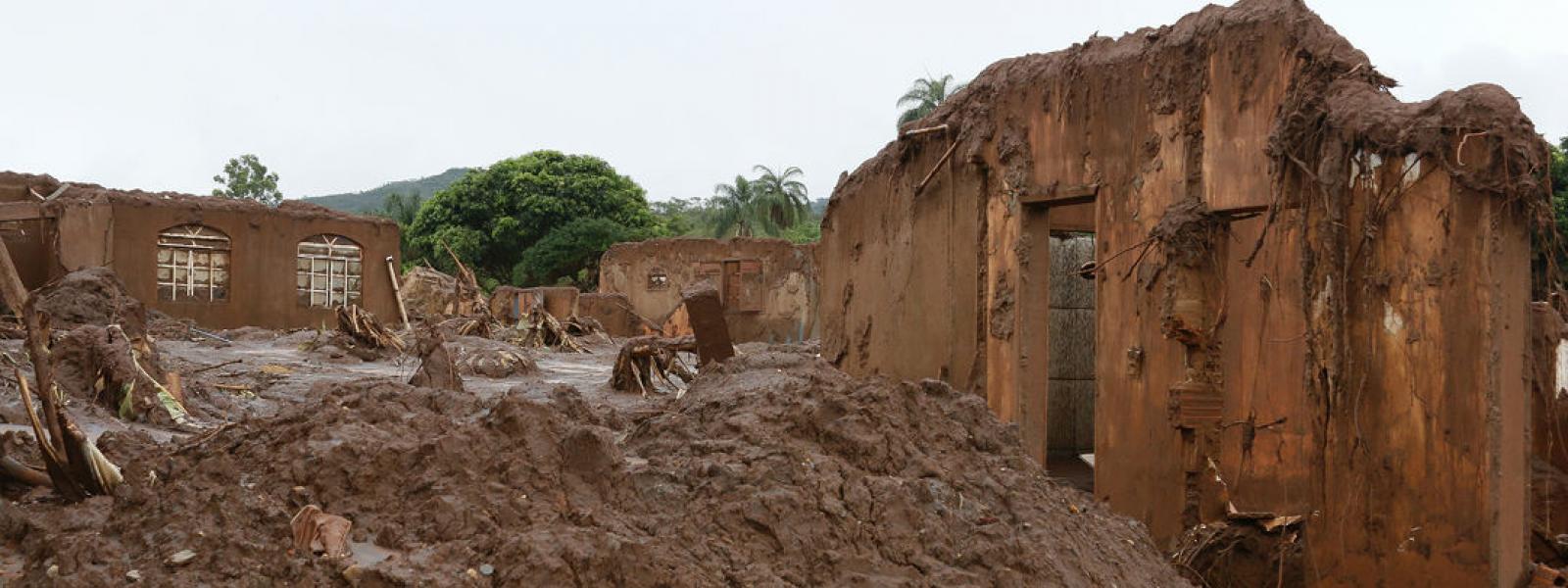
The asymmetry of power between companies and affected people, among other factors, makes access to justice difficult in the Americas. Organizations provided detailed information on this problem during a hearing before the Inter-American Commission on Human Rights (IACHR).
Santiago, Chile. Across the Americas, people and communities whose human rights have been violated by business activities face obstacles when exercising their right to access justice and achieve reparations for damages done. They are often confronted with criminalization, harassment and threats. Among other reasons, the situation reflects the reality that, in many countries, businesses are not properly controlled and may even receive government incentives to continue operations, despite the fact that they violate human rights.
In a hearing before the Inter-American Commission on Human Rights, civil society organizations[1] demonstrated, through emblematic cases in South America, that this is a problem that happens throughout the region.
One of these cases occurred in Brazil on November 5, 2015, when a dam of mining waste owned by Samarco burst in the Río Doce basin. The rupture caused the worst socio-environmental disaster in the country’s history: tons of toxic sludge moved down the river, destroying homes, schools, crops and livestock on its slow and deadly path to the Atlantic Ocean. The government and the company have since closed the case on the disaster, after reaching a settlement in which the victims were not even able to participate.
“I lived a quiet life. I never would have expected to see what I saw, to witness families destroyed. We need employment, but we need it responsibly, not in a way that ends up killing people. We are asking for help now, because we can’t let these companies do whatever they want. If this Commission can help us, we would be grateful,” said Antonio Gregorio Santos, a victim of the case in Brazil.
In the hearing, the organizations also referred to the case of Southern Peaks Mining, financed by the British-owned Barclays Bank, in which they are accused of breaching agreements with Mala communities in Peru. Here the victims found persecution and illegal detention in their search for justice.
“We have identified various barriers to access to justice for the victims. Some—such as socio-economic, cultural and linguistic barriers—were identified in the Commission’s Report on indigenous peoples, afro-descendent communities and extractive industries,” said María José Veramendi Villa, attorney at the Inter-American Association for Environmental Defense, one of the petitioning organizations at the hearing. “Many obstacles are exacerbated in disputes with companies due, in large part, to the sharp asymmetry that exists in this relationship, expressed, for example, in political interference on the part of companies and in the lack of adequate independent safeguards for judicial power in many countries of South America.”
The organizations requested that the Commission remind the States of their obligation to guarantee access to justice for those who have suffered human rights violations at the hands of companies, and urge them to strengthen domestic legislation accordingly. They also requested that the Commission develop binding standards regarding business and human rights in its rulings on petitions and individual cases—as well as in its thematic reports—in particular with regards to access to redress mechanisms. Finally, they highlighted the work of those who defend human rights against the actions of companies and reminded States that they must provide adequate conditions for their operation.
[1] Interamerican Association for Environmental Defense (AIDA, regional); Centro de Información sobre Empresas y Derechos Humanos (CIEDH, regional); Centro por la Justicia y el Derecho Internacional (CEJIL, regional); Centro de Derechos Humanos y Ambiente (CEDHA, Argentina); Campanha para parar o poder das Corporações (Brasil); Justiça Global (Brasil); Pensamiento y Acción Social (PAS, Colombia); Project on Organizing, Development, Education, and Research (PODER, México); Fundar Centro de Análisis e Investigación A.C (México); Proyecto de Derechos Económicos, Sociales y Culturales (ProDESC, México); Centro Mexicano de Derecho Ambiental (CEMDA, México); Código DH - Comité de Defensa Integral de Derechos Humanos Gobixha (México) y Asociación Pro Derechos Humanos (Perú).
